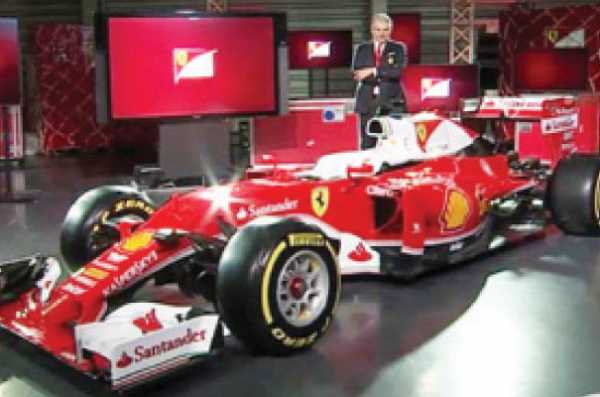F1 agrees on faster, new-look cars for 2017
Formula One has agreed on revamped cars for 2017 despite postponing the deadline for the final draft of technical regulations until April 30.
The new regulations are intended to produce faster cars -- in the region of three seconds per lap -- thanks to wider wings, a wider track and a larger diffuser. Wider tyres will also contribute to the dip in lap times expected as soon as next year. Some form of cockpit protection, most likely the Halo concept, is also set to be adopted.
The plans for faster cars, initially designed to bring a lap time improvement of five to six seconds, were developing around a Red Bull proposal since the start of last year but were watered down in recent meetings amid concerns Pirelli's tyres would not be able to cope with the increased loads. McLaren then put forward a proposal seen as a middle ground, which is what the teams agreed to implement at Tuesday's F1 Commission meeting.
"Following the recommendation of the Strategy Group, the F1 Commission agreed to postpone the deadline for the finalisation of 2017 Sporting and Technical Regulations until 30 April, 2016 - to allow all stakeholders the best opportunity to complete all relevant work," an FIA statement read.
"New bodywork regulations have been adopted to create more exciting cars, delivering additional downforce to increase speeds and lower lap times. The FIA, teams and official tyre supplier will continue discussions on the best solution for testing of the new tyres required as part of the regulations."
The finalised technical regulations will still be subject to agreement from the teams and approval by the World Motor Sport Council. If the teams that voted for the regulations on Tuesday are consistent with their backing of the new rules then the plans will go ahead, but until April 30 the exact regulations are not set in stone for 2017.
"It was agreed, but until it's written down as a regulation it's totally theoretical," Williams technical Pat Symonds told ESPN. "The trouble is that if someone wants to block it they can do, and that all of a sudden becomes very difficult indeed.
"It's a decision without action and a decision without action is not really a decision, is it?"
Discussion on power unit regulations is also ongoing with a deadline of April 30 for decisions on the cost of the engines, performance convergence, the obligation for manufacturers to supply others and further improvements to the noise. A working group consisting of representatives of the FIA, Commercial Rights Holder, Power Unit suppliers and customer teams will undertake further work ahead of the April 30.






